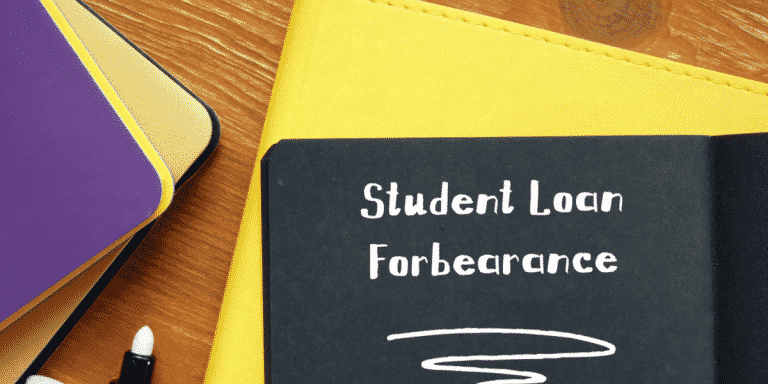One of the major concerns of the December 2020 stimulus bill was that federal student loan forbearance was not slated to be extended. Many Americans, some of whom are out of work, still have federal student loan balances and some were concerned that they would be unable to make payments toward those loans.
Luckily for these Americans, President Biden has agreed to extend student loan forbearance until September 30, 2021. The Education Department agreed to this action on January 20, President Biden’s first day in office. This policy affects 41 million Americans who have outstanding federal student loan balances, either for themselves or for their children.
So what is this student loan forbearance, what loans does it affect, and what can borrowers do in the meantime?
What Is Student Loan Forbearance?
Since the CARES Act was signed into law in March 2020, federal student loans have been put into a state of forbearance. Forbearance means that payment obligations have been deferred to a later date. Essentially, it means that borrowers do not have to make the otherwise-scheduled payments toward their federal student loan debt.
This forbearance is different than most other types of student loan forbearance, as student loan interest will not accrue during the forbearance period. This means that you will not have a larger balance than what you started with. Not only that, but federal student loans that are in default will not be collected.
Why Did Federal Student Loans Go Into Forbearance?
The CARES Act (March 2020) signed into law by then-President Donald Trump was introduced to allocate spending and debt relief for American citizens during the COVID-19 pandemic. Originally, loans were supposed to remain in forbearance for six months; however the forbearance period was extended twice. The first extension lasted until January 31, 2021, and the second extension will last until September 30, 2021.
This student loan forbearance extension was agreed upon by President Biden and the US Education Department in order to provide relief to people who are still out of work. Since the pandemic and the subsequent lockdowns have lasted all throughout 2020 and threaten to continue well into 2021, the Biden administration wanted to make sure that those who were still out of work are able to afford basic necessities.
Which Loans Count for Forbearance?
Federal student loans, which includes both subsidized and unsubsidized loans as well as Direct PLUS loans (including Parent PLUS and Grad PLUS) are all eligible for the forbearance period.
Student loans provided by a lender that is not the US Federal Government will not be eligible for this forbearance period. These loans have been continuing to accrue interest and payments have continued to be due. This will not change with the extension of the federal student loan forbearance period.
What To Do About Private Student Loans
Just as in the original moratorium on student loan payments and interest, student loans issued by private lenders such as Sallie Mae do not qualify for this type of forbearance. Private student loan borrowers are still responsible for their private loan payments.
However, many private student loan borrowers are having just as much trouble affording their payments due to being out of work or having their income reduced as a result of the pandemic.
If you are having trouble paying down your private student loans, you have options available to you. Call your lender or visit your lender’s website to see what options are available. Whatever you do, do NOT miss a payment on purpose and do NOT default on your loan if at all possible!
Here are some potential options you may have:
Negotiate lower payments
You may be able to temporarily arrange lower payments during the pandemic if you’re unable to afford your normal payment amount. Lenders would rather get something than nothing, and they’re usually more than happy to assist you.
Some student loan providers offer income-based repayment plans, which are usually temporary. This is not the same as the FSA’s income-driven repayment plans.
Temporary forbearance
Private student loan providers offer temporary forbearance which can be used in case you are unable to make the payments on your student loans. These providers have made arrangements with borrowers who are affected by the pandemic.
However, there may be limits to how long you can keep your loans in forbearance. Make sure to ask your student loan provider about the forbearance terms.
Consolidation or refinancing for a lower payment
Some private lenders offer loan consolidation, however if you do want to consolidate your private student loans, you may want to shop around for the best rate. SoFi Financial, LendKey, and Splash Financial are examples of lenders that specialize in consolidating and refinancing private student loans.
Should I Pay Down My Federal Student Loan Debt In The Meantime?
The answer is yes, but only if you can afford to do so. This reprieve is for student loan borrowers who are having trouble allocating funds toward normal expenses. Borrowers who are no longer responsible for student loan payments no longer have to worry about making payments until October, and can use whatever funds they have toward their necessary expenses.
On the other hand, if you can afford to pay down your federal student loan debt during this time, you absolutely should! During the forbearance period, your student loan debt will not be accruing interest and payments made will count toward the principal. For those who are not out of work, this is a good time to catch up on paying down that debt.



